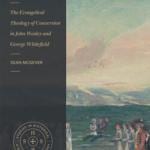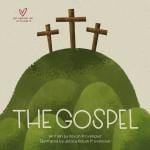This post is part of a series walking through the first volume of Abraham Kuyper’s Common Grace.
Chapter 40, just over the halfway point of the volume, marks the beginning of an exploration of the time between the Flood and the call of Abraham, or roughly 425 years of history. The three main moments here include:
- Noah’s prophecy
- The Tower of Babel
- Nimrod
All three of these are, according to Kuyper, directly related to common grace and form the substance of the next few chapters.
Specifically, we see that common grace is at work, but that we’ve not yet seen the rise of particular grace:
“…up to the history of Abraham, the working of particular grace does not as yet mesh with the wheel of history. Until Abram, church and world are intermixed, and only through his calling from Ur of the Chaldeans does the church get a separate realm, albeit for the time being still died nationally to one particular people. But that is not how it was from the days of Noah until Terah. Then there were also children of God and children of the world, but they still lived mixed together. The children of God were not yet organized among themselves, either nationally or ecclesiastically.” (350)
In other words, everything here is related to common grace. There is not yet a called-out people whom God has shown his particular love to in any public way (though as Kuyper notes, that is not the same thing as saying that no one has been saved).
This brings us to Noah’s prophecy. Genesis 9:18-29 is an odd passage, taken by itself. It especially seems that the curse placed on Canaan is disproportionate in response to Ham’s transgression. And yet, Kuyper notes that a minor change in direction of railroad tracks or an artillery shell can lead to vastly changed results over even a moderate distance. The same is true spiritually and in families. A seemingly minor sin or bad habit on the part of a parent can have an ever-deepening ripple effect over the generations. Kuyper doesn’t think that character is hereditary, but nor does he believe we can deny that traits run in families unless intentionally and vigorously resisted.
“Only when we keep this clearly and sharply in mind do we begin to realize something of the awesome responsibility under which our personal life stands. It would almost make us afraid, and it is indeed something to be afraid of for anyone who does not believe in an all-governing God. But the fact cannot therefore be ignored that if we must conclude anything from this, it is that every family stands under the obligation to note its sinful character traits, to combat them and change them with God’s help, so that the hereditary misery that pursues it like a curse may initially be brought under control and ultimately disappear.” (352)
This line of reasoning also would seem to have racial implications, though Kuyper does not work that out–and I suspect it’s probably better that he didn’t. He does, however, remind us that if a family is important, how much more important are the founders of the various races of mankind? Yet, even then, those founders were themselves shaped by Noah and his wife–both of whom had parents who shaped them. And when we trace this line all the way back, whatever problems the various races have (and again, let’s be glad Kuyper didn’t go into detail here) may be traced ultimately to Adam.
Which we should note is something of a slight-of-hand to get away from the original concern about the nature of Noah’s prophecy. But then again, Kuyper’s point is just that all of us are guilty regardless of race or family, and that common grace is at work in each of those areas as well.
This chapter certainly felt like something of a potential minefield, given current social and cultural tensions. No doubt we’re not done with such potential landmines (especially given that the next chapter takes up the question of the Tower of Babel).
Dr. Coyle Neal is co-host of the City of Man Podcast and an Associate Professor of Political Science at Southwest Baptist University in Bolivar, MO













